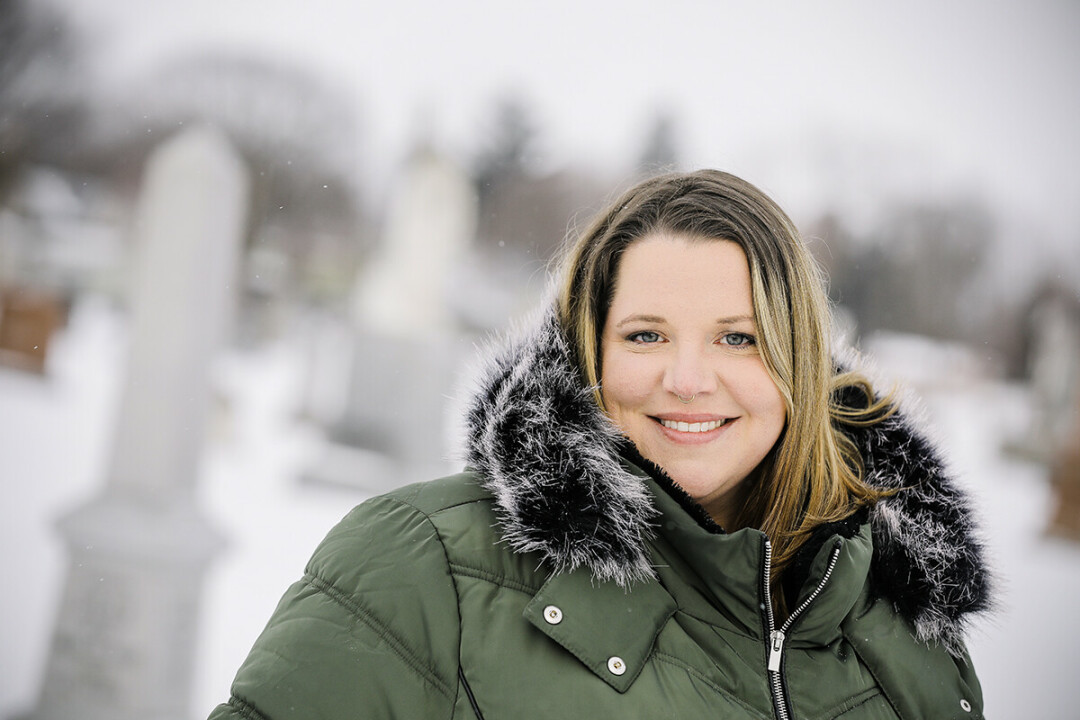Making Peace: Death Doula Works to Eliminate Fearful Stigmas
death doulas provide non-medical support at the end of life
Keely Khoury, photos by Andrea Paulseth

“It’s so taboo in America to talk about death,” said Betsy Munro Jeffrey, a Chippewa Falls-based death doula. “Death rates hold steady at 100%, yet we fear and deny that it will happen to us.”
Death doulas, or “end-of-life doulas,” provide a variety of non-medical services and means of support. Doulas act as guides, and provide their own unique mix of skills and services that may encompass anything and everything from light housekeeping, companionship, and bedside vigils to legacy work and bereavement assistance.
“Thinking about your own mortality is a lot of work,” Munro Jeffrey said. “I create a plan with my clients, based on their needs and goals, and the opportunities in our community. It all depends on them. I have tried to simplify it with some ideas to get the ball rolling, but the relationships we build together really steer the potential.”
Munro Jeffrey’s interest in end-of-life care began after she read about cultures around the world celebrating death as a beautiful part of life. In many countries, including the United States, that connection no longer exists. Her business, End of Life Wellness, reflects her approach to helping make time at the end of life rewarding, healing, and pleasurable.
“Death isn’t a medical emergency, even though we treat it as one,” Munro Jeffrey said. “What we should be doing is treating it as a sacred time focused on being present in the moment. We get so uncomfortable seeing others hurt that we turn away instead of comforting. There is so much that each person can do for themselves and their loved ones. The biggest one is the simplest! Show up!”
“Death isn’t a medical emergency, even though we treat it as one,” Munro Jeffrey said. “What we should be doing is treating it as a sacred time focused on being present in the moment. We get so uncomfortable seeing others hurt that we turn away instead of comforting. There is so much that each person can do for themselves and their loved ones. The biggest one is the simplest! Show up!”
While her training and experience make her an obvious choice for providing support within her own family, Munro Jeffrey said that the complexities that come from such close relationships make the job more difficult. It requires honesty, as not everyone wants assistance – or they may have a clear idea of what type of help they are willing to accept and from whom.
Munro Jeffrey spent several months with her grandfather at the end of his life, and she said that what made his death such a good one was what came before: The time they spent together reminiscing and, crucially, creating new memories. She is now supporting her mother.
End-of-life care is complex. The requirements and concerns of each person, and those around them, are completely individual. Munro Jeffrey makes it clear that she doesn’t have all the answers. As an independent means of support, she helps people ask difficult questions and access resources about law, healthcare, insurance, funerals, and more. Whenever possible, she does that through connections with a variety of other local Chippewa Valley businesses.
“We must remember that not everyone is capable of having a good death,” Munro Jeffrey said. “There is suffering. There are limits to finances and medicines. Time itself is uncontrollable. People have accidents. We should bring death back into the room so we can grieve and heal and grow, together.”
Learn more about Betsy Munro Jeffrey and End of Life Wellness at www.facebook.com/EndofLifeWellness.

